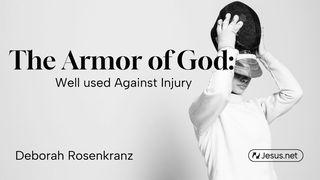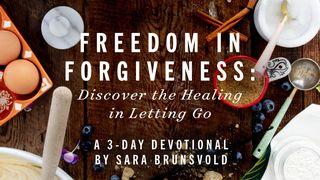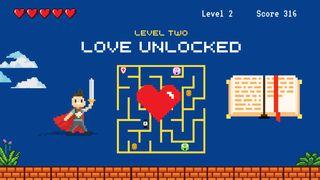Becoming Healthy HumansSample

Becoming Emotionally Healthy
In our journey to becoming healthy, whole, full of life, and free from anxiety, our first stop is our emotions. Because, whether we want to admit it or not, human beings are emotional beings.
So much so that social psychologist and author Jonathan Haidt describes the way we make decisions as being like an emotional dog with a rational tail. Meaning, our emotions often lead the way in our decision-making, followed by rational explanations of why we made those decisions.
And, if we’re willing to look at ourselves honestly, we can see how often this is the case.
You know that the right thing to do when you’ve hurt someone is to admit what you said was wrong and apologize. But that feels really uncomfortable. So, instead of taking responsibility and working to make things better, you don’t. And then you convince yourself it’s really not that big of a deal, and if they really do have a problem, they’ll come to you, right?
You know that you need to tell someone about the mental struggles you’ve been experiencing, but you feel like if you do, they’ll think less of you. So you stay quiet. And you rationalize it by repeating to yourself that it's your problem so it’s your job to fix it.
Does that sound familiar? If we’re being honest, the answer is almost certainly yes. Because to be human is to be emotional. This is why it matters so much that we learn to be emotionally healthy. Until we are, it’s going to be really hard to love God fully and love others deeply.
So, how do we become emotionally healthy? First, we need to embrace a few powerful truths:
God cares about your emotions.
God isn’t surprised, disappointed, or frustrated by the fact that you have emotions. He’s the one who created us in His image and designed us to have emotions. Why do emotions matter? Because God is a relational God, and emotions are an essential ingredient in meaningful relationships. On top of that, all throughout the Bible we read about God having emotions. The perfect Creator of everything, who created us in His image, is an emotional being because He is a relational being.
It’s important to acknowledge that emotions are real and good, but because of the Fall and the disease of sin that has infected all of us, our emotions can lead us astray. What you feel is real, but it isn’t always reliable. That’s why the Old Testament prophet Jeremiah said, “The human heart is the most deceitful of all things, and desperately wicked. Who really knows how bad it is?” (Jeremiah 17:9 NLT). This is why becoming emotionally healthy will never happen if we simply follow our hearts. We need to follow Jesus as He heals our hearts. Only He knows how bad things really are, and only He has the power to cure the disease of sin.
Sometimes, because our emotions can be a lot to deal with, we stuff them down instead of actually dealing with them. But, as we all know, stuffing them doesn’t stop them. It just causes them to build and build until, eventually, they boil over—which is a lot messier and more painful than simply embracing our emotions and working through them as they come.
So, how do we build a strong foundation of emotional health? We apply these five practices to our lives:
1. Feel your feelings.
If you want to heal it, you’ve got to feel it. So, whenever you sense your emotions rising up, create space and make time to actually feel what you’re feeling. Your emotions will often serve as a sign pointing to something deeper that needs to be addressed in you, in a relationship, or even with God.
At first, it can be really difficult to actually identify and name what you’re feeling. That’s okay. As with anything, this takes intentional effort and practice. If you want some help getting started, try using this Feelings Wheel.
2. Express your emotions.
Once you’ve felt your feelings, it’s time to express your emotions. Because, as we’ve already discussed, we are relational beings. It matters that we take what we’re feeling and honestly express that to someone else. It could be by texting a friend, calling a mentor, writing it in a prayer journal, or saying it out loud to God. By expressing our emotions to another person and to God, we unburden ourselves and give other people the gift of knowing how to love and support us well (Galatians 6:2).
3. Tell the truth.
Your feelings are real, but they are not always reliable. On their own, they will almost always bend toward sin and suspicion. This is why we need to tell ourselves the truth of God so we can cut through the lies of the devil.
While you may feel like a failure who will never be able to recover, God’s Word tells us, “… for though the righteous fall seven times, they rise again …” (Proverbs 24:16 NIV).
While it may feel like God has abandoned you, He says, “... Never will I leave you; never will I forsake you” (Hebrews 13:5 NIV).
While what you are going through may feel overwhelming, Jesus reminds us, “... In this world you will have trouble. But take heart! I have overcome the world” (John 16:33 NIV).
4. Prioritize progress.
After feeling your feelings, expressing your emotions, and telling the truth, it’s time to prioritize progress. A common pitfall is thinking that taking time to process your feelings is all it takes to make progress in your healing. Processing your emotions is an important step in the journey—but it is not the last step. Based on the truth of who Jesus is and what God has spoken, we need to act in accordance with what is real in order to actually heal.
So, what action do you need to take? Do you need to reach out to the friend who hurt you, tell them why it hurt, and offer them forgiveness? Do you need to confess a sin to God and ask someone to hold you accountable so you can make the right changes? Do you need to get back on your feet, give it another shot, and do your best to make the next attempt better than before?
5. Have a hobby.
This one is the “preventative medicine” for emotional health. Having something you do on a consistent basis that challenges you in some way and brings you joy will do wonders for your overall well-being—and each of those elements is really important for this to be effective. It’s got to be consistent. Meaning, you do it at least one time a week for at least an hour. If you can do it more, that’s even better. It needs to challenge you. There’s something about overcoming challenges and growing in our skills that develops our character in ways few things do. If it’s too easy, you’ll get bored and won’t get better. And last, it needs to bring you joy. You’re most likely to find joy in things that involve other people, include some type of physical activity, and have elements of creativity.
Becoming emotionally healthy will make your life better, and it will enable you to love God with all you are and love others the same way Jesus does. That’s a really big deal. It’s not going to be easy, but it will absolutely be worth it.
About this Plan

You were created by God to be healthy, whole, full of life, and free from anxiety—for your sake and the sake of others. Because your purpose is bigger than you. It’s about loving God with your whole self and loving your neighbor as yourself. But that’s really hard to do well when we’re emotionally, spiritually, mentally, and physically unwell. So, let’s embark on a journey to become healthy humans.
More
We would like to thank Life.Church for providing this plan. For more information, please visit: https://www.life.church/
Related Plans

Chosen and Complete: Embracing God's Plan Beyond Marriage

The Way of the Cross

The Big 5

We're So Blessed: A Fun 5-Day Family Devotional From CAIN

The Armor of God: Well Used Against Injury

Freedom in Forgiveness: Discover the Healing in Letting Go by Sara Brunsvold

Spiritual Beings

Bold Faith, Mighty Works: Walking in the Spirit’s Power

3-Day Bible Quest: Level 2: Love Unlocked – Powering Up Through Jesus
